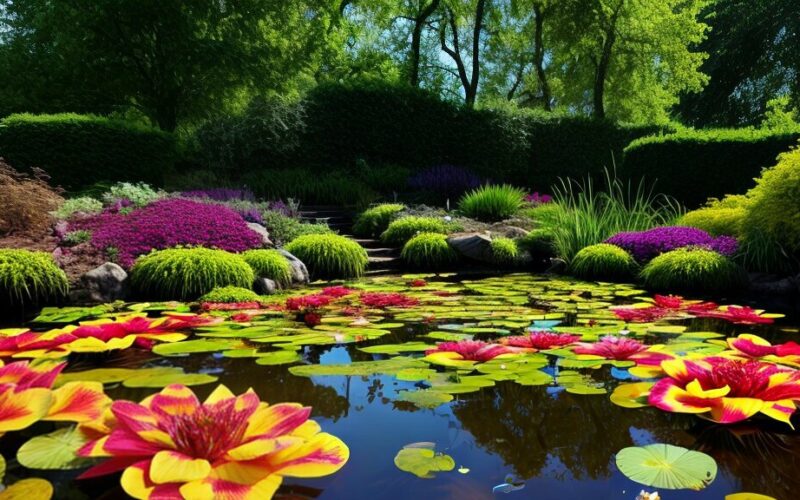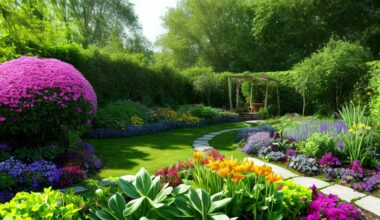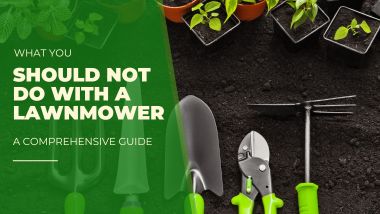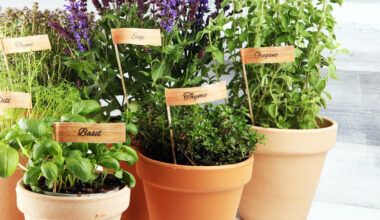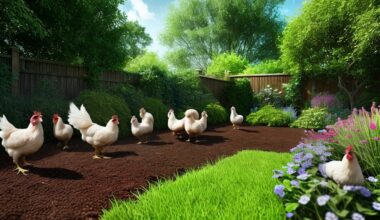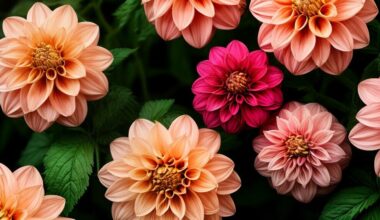If you’re a gardener, you’re always on the lookout for ways to nourish your plants and enrich your soil. One increasingly popular option is pond sludge, the nutrient-rich, organic material that collects at the bottom of a pond. But is it really good for your garden? Let’s take a closer look.
Key Takeaways:
- Pond sludge can be a beneficial source of organic fertilizer for your garden
- It contains important nutrients and beneficial bacteria that promote healthy soil and plant growth
- Using pond sludge can improve soil health, promote sustainable gardening practices, and have a positive impact on the aquatic ecosystem
- Proper use and application is important to avoid potential drawbacks and maintain a healthy garden
Understanding Pond Sludge as an Organic Fertilizer
When you hear the term pond sludge, the last thing that may come to mind is using it as a fertilizer for your garden. However, pond sludge can actually be a nutrient-rich, natural source of organic fertilizer that can provide numerous benefits for your plants.
Pond sludge is essentially the result of decomposing organic matter that accumulates in ponds or other bodies of water over time. This decomposed matter is rich in essential nutrients like nitrogen, phosphorus, and potassium, which are all essential for healthy plant growth.
In addition to the nutrient content, pond sludge is also full of beneficial bacteria that can promote healthy soil and plant growth. These bacteria help break down organic matter in the soil, making nutrients more readily available to plants, while also improving soil structure and water retention.
So, if you’re looking for a natural, environmentally-friendly way to fertilize your garden, pond sludge may be an excellent option to consider.
However, it’s important to note that not all pond sludge is created equal. The quality of pond sludge can vary depending on factors like the type of pond, the water quality, and the types of organisms present. So, it’s important to source your pond sludge carefully, and to make sure that it’s properly processed before using it in your garden.
Benefits of Pond Sludge as an Organic Fertilizer
Using pond sludge as an organic fertilizer can provide numerous benefits for your garden. Here are just a few:
- It’s a natural, environmentally-friendly fertilizer that helps reduce waste and promotes sustainable gardening practices.
- It’s nutrient-rich, providing your plants with essential minerals and micronutrients that they need to thrive.
- It’s full of beneficial bacteria that can help improve soil structure and promote healthy plant growth.
- It’s a great source of organic matter, which can help increase soil fertility and promote nutrient cycling.
Overall, pond sludge can be an excellent choice for gardeners who are looking for a natural, effective way to fertilize their plants and promote healthy soil.
Improving Soil Health with Pond Sludge
If you’re looking for a natural way to improve the health of your garden soil, pond sludge may be a great option. Not only is it a natural compost, but it also contains a wealth of beneficial nutrients and microorganisms that can help promote healthy soil and plant growth.
| Benefit | Explanation |
|---|---|
| Increases Organic Matter | Pond sludge is a rich source of organic matter, which can help improve soil fertility and structure. |
| Improves Soil Structure | The beneficial bacteria found in pond sludge can help break down soil particles and improve soil structure, making it easier for plants to access nutrients and water. |
| Promotes Nutrient Cycling | Pond sludge contains a variety of nutrients, including nitrogen, phosphorus, and potassium, which can help promote nutrient cycling in the soil and support healthy plant growth. |
By incorporating pond sludge into your gardening routine, you can help create a sustainable and healthy ecosystem in your garden. As the organic matter breaks down, it also promotes strong root development, which can help plants grow more vigorously and produce higher yields.
However, it is important to note that while pond sludge can be an effective natural fertilizer, it should be used in moderation. Overapplication can lead to an excess of nutrients, which can have negative effects on soil health and water quality.
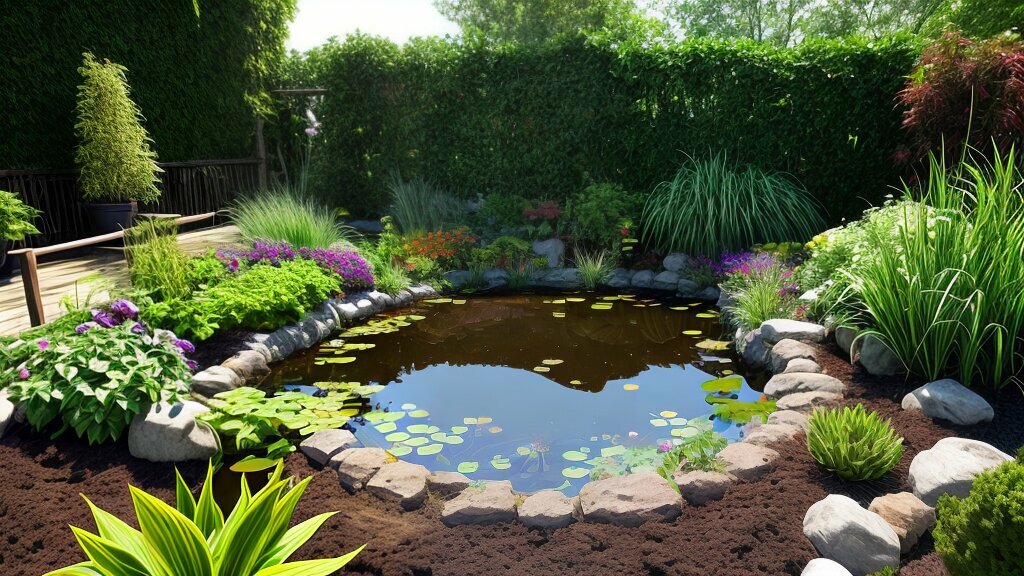
Sustainable Gardening with Pond Sludge
If you care about sustainable gardening, then using pond sludge in your garden is a great choice. By using this organic fertilizer, you are not only improving your soil quality but also contributing to the protection of the aquatic ecosystem.
Pond sludge is a natural byproduct of your pond’s ecosystem. Instead of throwing it away, you can use it as a natural compost that will help your plants grow and thrive. By doing this, you are reducing waste and promoting a healthier environment.
In addition, pond sludge is an environmentally friendly option because it is a sustainable resource. You do not need to use chemical fertilizers or other harmful products that can harm the soil and groundwater. Instead, you are using a natural fertilizer that replenishes nutrients in the soil and supports healthy plant growth.
Using pond sludge in your garden is also an excellent way to promote nutrient cycling. By introducing organic matter into the soil, you are creating a healthy environment for beneficial microorganisms to thrive. These microorganisms break down the organic matter and release nutrients, which become available for plant uptake. This process helps to create a sustainable and self-sufficient garden ecosystem.
Overall, using pond sludge in your garden is a sustainable choice that benefits both your garden and the environment. By choosing to use organic fertilizers like pond sludge, you are promoting healthier and more sustainable gardening practices that support a thriving ecosystem.
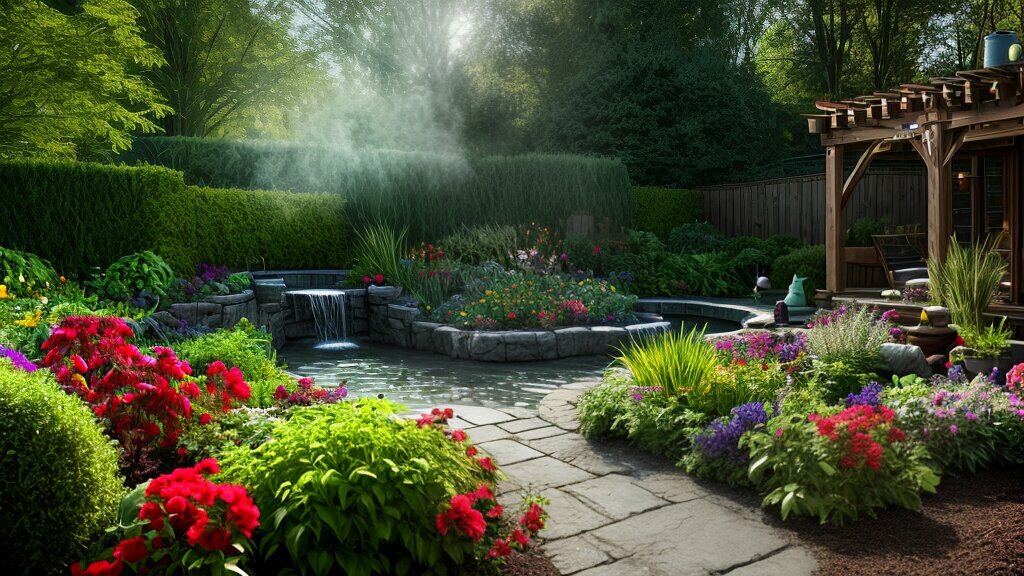
How to Use Pond Sludge in the Garden
Now that you know about the benefits of using pond sludge in gardening, you might be wondering how to use it in your own garden. Luckily, it’s a fairly simple process.
First, gather the pond sludge from the bottom of your pond and let it dry out for a few days in the sun. Once it’s dry, mix it into your garden soil or add it to your compost pile.
If you’re using pond sludge as an organic fertilizer, sprinkle a thin layer on top of the soil around your plants and gently work it into the soil. Be careful not to use too much as it can burn your plants.
Pond sludge can also be used as a natural compost accelerator. Mix it in with your compost pile to speed up the breakdown process and add valuable nutrients to your compost.
It’s important to note that while pond sludge can be a great addition to your garden, it’s not a miracle solution. It’s still important to maintain balanced soil and provide adequate water and sunlight for your plants.
Overall, using pond sludge in your garden can be a sustainable and beneficial practice. Just be sure to use it properly and in moderation for the best results.
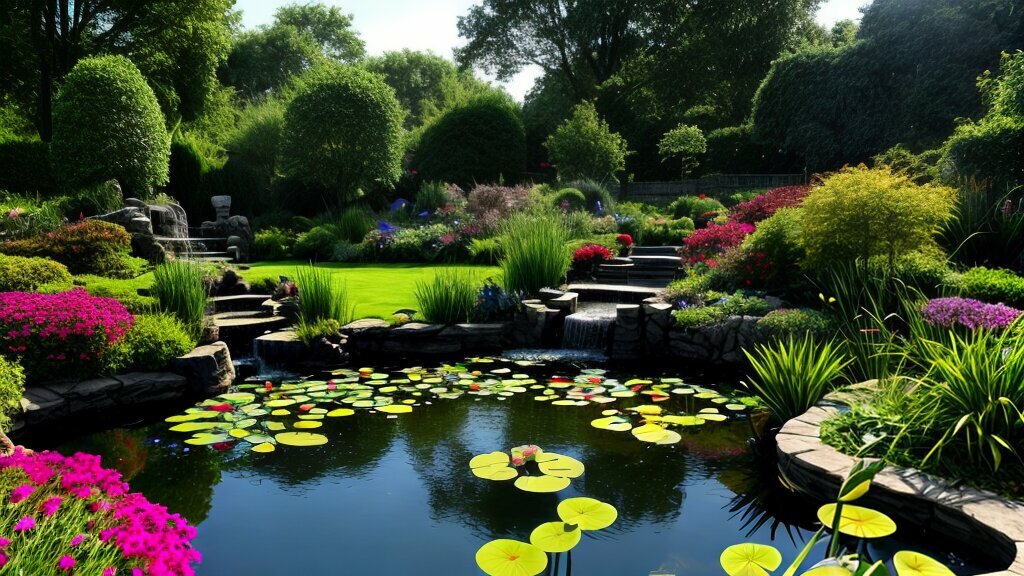
Conclusion
Congratulations! You’ve learned all about the benefits of using pond sludge in your garden. So, is pond sludge good for the garden? The answer is a resounding yes! This nutrient-rich organic fertilizer can improve soil health, promote sustainable gardening, and boost plant growth.
By incorporating pond sludge into your garden, you’re not only creating a healthier environment for your plants, but you’re also contributing to the health of the aquatic ecosystem.
Remember to follow the recommended dosages and application methods when using pond sludge in your garden. With a little patience and practice, you’ll soon start seeing the benefits of this natural compost in your garden soil.
So go ahead, give pond sludge a try and watch your garden thrive!

